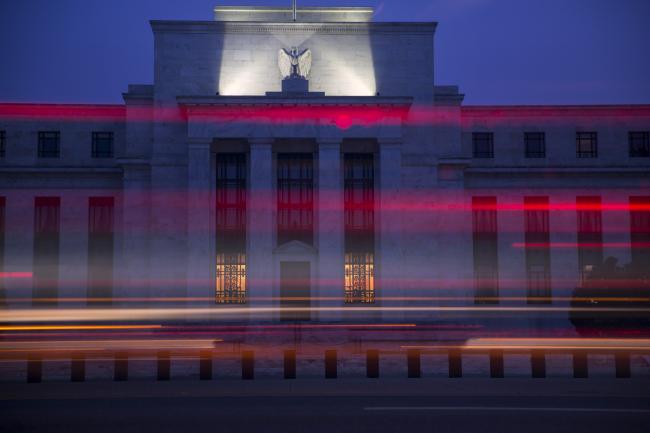(Bloomberg) -- Federal Reserve officials have got the flattening yield curve on their radar screen but individual policy makers have different ways of looking at the situation.
Some worry about further rate hikes causing it to invert while others view the process as a normal part of monetary policy normalization as the economy picks up steam.
With the spread between 5- year and 30-year Treasuries narrowing last week to the lowest levels in more than a decade, here are some of their recent comments:
- Dallas Fed President Robert Kaplan, speaking in New York on Tuesday, says “I don’t want to knowingly invert the yield curve.” Kaplan is not a policy voter this year.
- James Bullard, president of the Federal Reserve Bank of St. Louis, says Monday the central bank’s policies are to blame for the flattening and it should take care not to invert the curve by aggressive rate hikes. Bullard is not a voter this year and opposes further rate hikes.
- Bullard says on May 11 that it’s getting close to “crunch time” on yield curve inversion
- Chicago Fed’s Charles Evans, speaking on April 20, says the yield curve is less of a concern than it had been a few months ago, given the increase in deficits that’s being reported and additional funding needs. Evans does not vote on policy this year.
- Fed Governor Randal Quarles, speaking April 18, says “I’m not viewing the current flattening of the yield curve as a particular signal of recession.”
- John Williams, who will become New York Fed president in June, said April 17 that a truly negative yield curve was a powerful recession warning but “the flattening of the yield curve that we’ve seen is so far a normal part of the process, as the Fed is raising interest rates, long rates have gone up somewhat.” Williams, now head of the San Francisco Fed, votes on policy this year.
- A Fed study released April 3 found that an inverted yield curve remains a powerful signal of a looming recession and that is still the case even if the current ultra-low level of U.S. interest rates are taken into account.
- Philadelphia Fed boss Patrick Harker, speaking March 29, says he expects the yield curve to steepen over the medium term, but “if that doesn’t occur in a way that I anticipate, then I’d be willing to slow the pace of increases.” Harker doesn’t vote on policy this year.
- Eric Rosengren, president of the Boston Fed, said Jan. 12 that a flatter yield curve doesn’t signal a recession and “I actually am not as worried about it.”
(Updates with latest Kaplan comment on Tuesday in first bullet point.)
